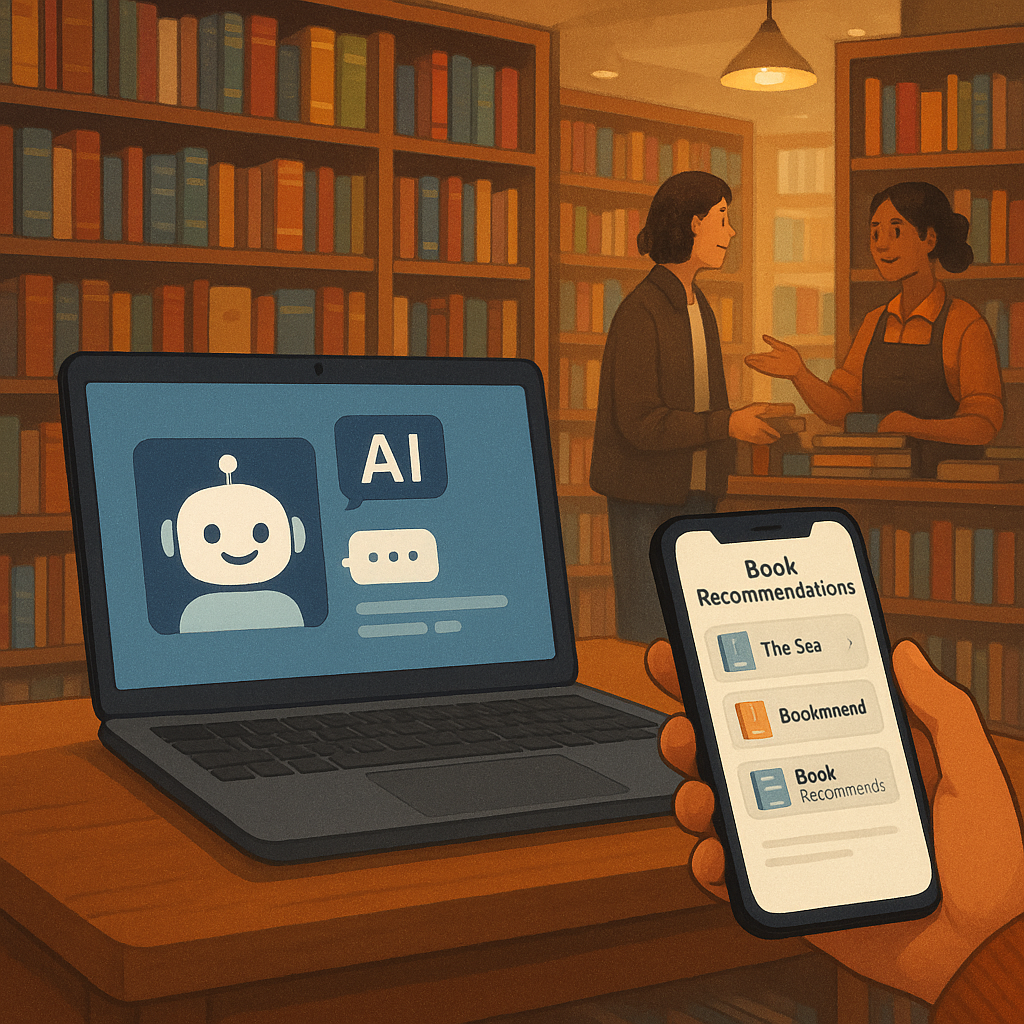Transforming Small Businesses with AI-Powered Customer Engagement

Introduction
In today’s fast-paced digital world, small businesses face unique challenges in connecting with their customers. As the landscape evolves, many are turning to AI-powered customer engagement strategies to build vibrant community hubs. By leveraging intelligent chatbots, personalized interactions, and data-driven insights, small businesses can substantially enhance customer loyalty and create a more interactive user experience.
Connecting Through Personalization
One of the standout features of AI technology is its ability to personalize communication. AI tools meticulously analyze customer behaviors and preferences, enabling businesses to deliver tailored experiences like never before. Whether it’s personalized product recommendations or targeted messaging, businesses are discovering that over 80% of their peers employ these strategies to attract and retain new customers.
Imagine a small bookstore that uses AI to suggest books based on previous purchases and browsing behaviors. By sending personalized email campaigns highlighting new titles that match individual customers’ interests, they not only boost sales but also foster a deeper connection with their clientele.
24/7 Support Mechanisms
Another significant advantage of AI adoption is the ability to provide round-the-clock service. Chatbots and virtual assistants can efficiently manage customer inquiries around the clock, taking care of booking appointments, answering simple questions, and addressing basic support needs. This capability removes the strain from staff members, allowing them to focus on more intricate concerns that require human intervention.
Consider a local gym implementing a chatbot to handle membership inquiries or class bookings. Members can access instant support at any hour, boosting overall satisfaction and promoting a friendly community atmosphere.
Making Data Work for You
Data-driven decision-making is crucial for small businesses aiming to stay competitive. AI platforms collect and analyze customer data from multiple touchpoints, giving businesses a clear picture of customer needs and preferences in real-time. This insight allows for more refined marketing strategies and optimized inventory management.
For example, a local bakery might implement an AI system that analyzes sales patterns and customer feedback to predict which pastries will be the most popular on a given day. This way, they can ensure they have the right stock on hand, reducing waste and maximizing revenue.
Community Building and Engagement
AI is not just about automation; it also fosters community. Businesses leverage these technologies to encourage direct conversations among customers, promote local events, and bolster user-generated content. For instance, a neighborhood café can use AI-driven loyalty programs to engage customers with interactive feedback loops and event promotions, transforming their platform into a lively community space.
A small florist might initiate an online contest for the best flower arrangement shared on social media, incentivized through discounts or features in their regular newsletters. These efforts create a vibrant community feeling while enhancing customer loyalty and repeat visits.
Additionally, businesses that automate content production—like blogs and social media posts—can maintain an active online presence with reduced staffing levels. Current trends show that a significant number of small businesses are now using AI for content marketing, enhancing their ability to connect with audiences while freeing up valuable time.
Best Practices for Implementation
Navigating the transition to AI doesn’t have to be overwhelming. Here are some actionable insights:
- Start Small, Scale Fast: Focus on user-friendly AI tools designed specifically for small businesses, ensuring easy integration with existing systems like CRMs or e-commerce platforms.
- Prioritize Security: Select reputable AI vendors and emphasize data privacy as part of your customer engagement strategy. Transparency in your handling of customer data builds trust.
- Leverage Chatbots Wisely: While chatbots can handle routine inquiries, ensure there are clear pathways for escalation to a human representative for more complex issues.
- Measure Performance: Regularly track engagement metrics and gather customer feedback to adjust strategies in real-time. Utilize AI dashboards to refine operational efficiency and community satisfaction.
- Encourage Community Interactivity: Foster environments where customers can participate—whether through reviews, Q&A sessions, or online forums, moderated with the aid of AI to highlight valuable contributions.
Conclusion
In conclusion, embracing AI-driven customer engagement strategies allows small businesses not only to compete on a broader scale but also to create welcoming, dynamic community hubs that resonate with their customers. Those who adopt AI thoughtfully can expect faster growth and more profound customer loyalty. As you integrate AI into your business, remember that technologies like chatbots and personalized marketing tools can transform your approach to customer engagement—making the process smoother, more intuitive, and ultimately, more profitable. With Untap’s expertise, you can harness the full potential of AI to elevate your engagement game, increase conversions, and develop lasting relationships within your community.